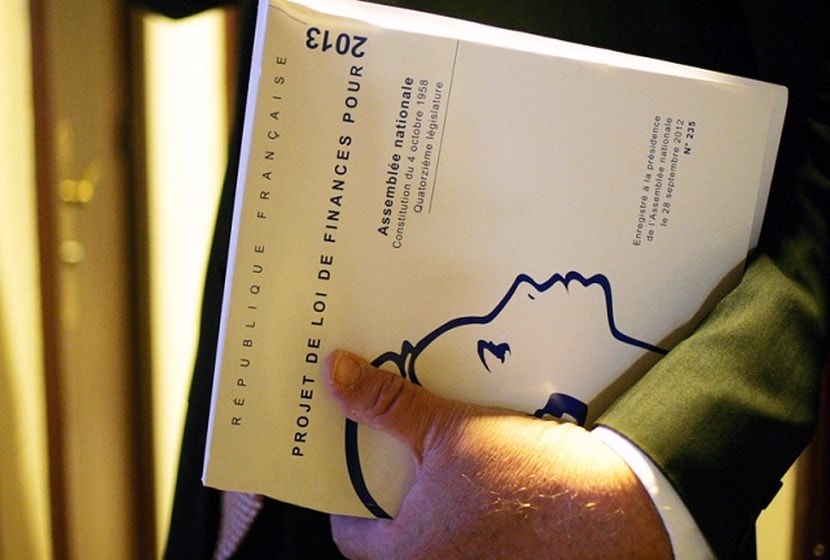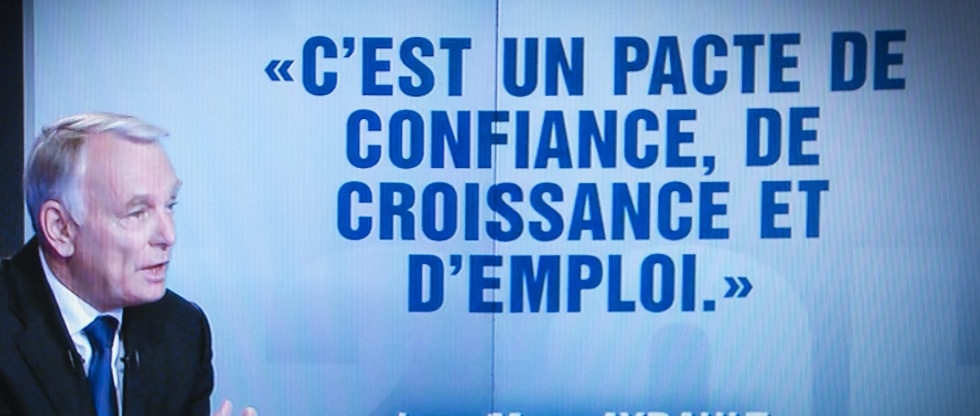Let's continue the update on the pigeon case after thehe first part focused on the draft 2013 Finance Act and the creeping nationalization of innovation financing.
This pigeon affair is part of a media-political landscape of great ignorance of the life of companies and entrepreneurs. Unfortunately, it is not new. Here are a few examples. And then some ideas to change the situation.
Right and left in the same bag?
The FDP 2013 was the icing on the cake of a system that had already been set in motion by the previous government, but went a little unnoticed. The taxation of capital was seriously increased in the PLF 2012 voted at the end of Sarkozy's five-year term.
The story of PLF 2013 is just one episode among many. Without entering into populism, the left has nothing to envy the right in economic stupidity and lack of understanding of the business world, from start-up entrepreneurs to large companies that are constantly being vilified.
Here are a few examples from the previous two five-year periods, which only concern the startup environment:
- A Jean-Louis Beffa created the Industrial Innovation Agency in 2005, which favours large groups and disdains startups. For this eminent member of the Corps des Mines, only large companies can innovate!
- A René Ricol, general commissioner for investments, great pilot of the famous "Future Investment Plan" but just as resistant to startups. To steer French-style innovation, the government of the day chose a chartered accountant! It is well known: chartered accountants are specialists in technological innovation. In Israel as in China, it is a scientist who is in charge. More than half of the Chinese government is made up of engineers. Barack Obama has a Nobel Prize in his government, his Energy Secretary Steven Chu, Nobel Prize in Physics in 1997. Where are the scientists in the Ayrault government? Where were they at Sarkozy and Fillon? The last one was Claudie Haigneré, until 2005.
- A Nicolas Sarkozy waiting for the eve of the first round of the presidential election to visit a digital startup (Melty). And another big symbolic mistake, that of Fouquet's. And in detail: there wasn't a single young entrepreneur among the guests!
- A chronic instability of the tax system maintained by the government, Bercy as well as by the deputies and senators during Sarkozy's five-year term. The changes in the TEPA-ISF law have generated a permanent yo-yo of the financial flows that end up in startups. And let us remember the episode of the trimming of the JEI status in 2011! All this to gain 50m€ of tax expenditure!
- A large loan launched in haste in 2009 and which has in fact become a veritable gas factory that is difficult for startups to access. With nine priorities in the digital world!
- The disastrous amendment of 14 December 2010 to the PLF 2011 voted surreptitiously in the joint Assembly/Senate committee just before the final vote of the PLF2011 which scuttled without really making any difference the financing of start-ups by ISF funds and SIBA, the investment companies of business angels. We cut a system that was only just beginning to be put in place by requiring them to have two employees! Together with other reductions in wealth tax exemptions, the right alone has halved the private investment that went into seed stage startups between 2009 and 2012. The origin of the amendment? Deputies and (right-wing) senators who wanted to fight against a drift of the TEPA-ISF law. It seemed that some people were creating fake companies to manage their wine cellars! We never knew how many such drifts had been observed and they threw the baby out with the bath water!
Some people laughed at what might have happened to Louis Gallois' report on competitiveness. Going against much of the ideological software of the socialists, it was not about to be applied, particularly in its main measure, which is to restore the social VAT that has just been abolished before being applied. This could have been a perfect replica of what happened to the report of the two Attali commissions under Sarkozy. Difficult reforms are always put aside, and political courage with them! There is no shortage of reports! Nor the drawers and cupboards to put them away! But finally, the Ayrault government ate its hat a little and finally adjusted, slightly, the VAT, to finance half of the reduction in the cost of labour to the tune of €20 billion in a full year from 2014. But the Welsh report is not very radical, much less courageous than Attali's report. We can feel the cautious hand of the Inspector of Finances. And it lacks strong symbolic elements. The announcement was a reflection of this: very cold and technocratic and giving pride of place to the 'all State' and the 'sectors' in a very 19th century vision of the processes of innovation!
This very state-centred vision of the country's functioning is fed by the major bodies (ENA and Polytechnique). We find it with the low proportion of entrepreneurs among our elected representatives, especially on the left, itself explained by the famous accumulation of mandates. It was not very brilliant under Sarkozy but with Holland, we have returned to elected representatives and a government dominated by civil servants and teachers. In the digital sector, Laure de la Raudière and Lionel Tardy are rare deputies who used to be entrepreneurs. Both of them are members of the UMP. Where are the left-wing deputies, digital entrepreneurs?
What is worse is that in this government, as in the previous government, some of the media are screaming about the conflict of interest scandal whenever someone from the private sector lands in a minister's office. There was also the Banque Lazard / Pigasse / Pulvar affair, which was a bit too much of a hot potato in that in this small world, everyone knows everyone! And the services rendered are legion but ... much more discreetly.
It is not surprising that our policies still reason with an outdated ideology: corporate life is largely alien to them. When they are on the right, they are basing themselves on an outdated Jacobinism and when they are on the left, it is the class struggle that takes over. Like the appalling Emmanuel Maurel, from the left of the PS, interviewed in l'Humanité, who talks about a "quarteron of millionaires" about the Pigeons and manipulates the amalgam as children spread Nutella on their toast. No wonder, a teacher in Constitutional Law at Science Po must not know much about startups! What about the extreme left and right? It's even worse!
Nonsense and economic paradoxes
The context in which this pigeon story took place is not insignificant. The financial crisis has led to a lot of confusion and misunderstandings about the economy on the part of politicians and the media that serve as a sounding board.
Here are some recent illustrations. It's a bit of a junk, which consolidates a current affairs magazine over time.
Analysis of the weakness of our exports
We often hear economists explain that they are due to the "poor quality" of French products. While this may be true for our cars, can it be extrapolated to other industries? There is certainly a deficit in R&D investment in certain areas. But has it occurred to these economists that the deficit also lies in other dimensions: in marketing, in design, in the willingness and ability to export, and also more prosaically in our average practice of teamwork, not to mention our poor command of English? The shortcomings of teamwork explain the recent slumps in our nuclear power plants against the Koreans. Not to mention the lobbying where we are regularly beaten by Americans, Chinese and others. Are the Rafale, the A380 or the TGV poor quality products?
Well, no. Our problems are elsewhere too! Too low-range positioning? It depends on the industry. We have both the very high end (transport, luxury, military), the classic (energy, banking), and the more traditional (food processing, tourism, crafts). And we are not present enough in technologies sold in volume, having let the Americans and Asians take over these markets, and the Germans in tools to build everything. Many SMEs create rather high-end products, but they are so high-end that they cannot sell them in volume and their activity is therefore a matter of industrial craftsmanship, which is a form of contradiction in terms. It's not a question of quality, but of positioning! Take the Consumer Electronic Show in Las Vegas, which I visit every year: barely forty companies present out of 3300 exhibitors!
There is one case where quality is a problem, but it is services that we are talking about: tourism. We are indeed the first destination in the world, but the quality of the welcome and the valorisation of the heritage are still very average. How many museums offer explanations in a language other than French? How are technologies being used to improve tourist itineraries? Is Wi-fi widespread? And then, we could earn some % of turnover by sending quite a few people to customer relations training courses. If only the coffee shops in Paris! A few extra smiles could well improve the trade balance!
Finally, in the digital world, we suffer not from the quality of our products but from the difficulty of creating them in the absolute. Digital France is mainly dominated by its service industry! As it has difficulty in structuring its R&D to create products sold in volume, it falls back on service. This is also the case of the open source software industry which, when it is based in France, remains very "service-oriented". Only the French open source software companies that have moved to the USA have managed to adopt a product and volume approach, such as Talend, which is the French software publisher that has raised the most in the last two decades with more than $60m.
Businesses should certainly sweep their doorstep as well. Competitiveness problems are not just related to bad luck, relentless competitors or regulation and taxation. There are also poor managers who go unpunished, mistakes in strategy that are not taken on board and organisations that stifle creativity! The dilbertization of our companies is a real plague! Imagine a France without these managers who make their employees arrive at work with fear in their stomachs every morning! A France where large companies would pay their subcontractors on time. This too is a problem of 'quality'.
The "profitable" factories
In February 2012, we were entitled to a bill, co-signed by François Hollande, on the takeover of sites such as Florange: the companies that would disengage from it would be obliged to sell these sites to the highest bidders, under the control of the Commercial Courts. The proposal was taken up by the government and the thunderous Arnaud Montebourg. It reacted to a few identified cases of factories that their owners, often foreigners, did not necessarily wish to resell. In practice, these particular cases could be settled without creating a law, or difficult to settle even with a law.
In the case of Florange, the shutdown of the blast furnace was justified by Arcelor-Mittal by the decline in the European market. I wonder who would be interested in buying such an industrial tool in such circumstances. Go and sell steel with an old steelworks in which we have to reinvest heavily and in a market controlled by a few oligopolies!
In fact, factories are never profitable on their own, it's business that is! A business includes upstream R&D, then production, then marketing and is located in a market. The market is changing and requires constant adaptation. Competition concerns both the products and the allocation of capital within the company. If the market is not there, if the marketing is not there, the factory is a problem! Even in a large group. Afterwards, we move on to another register, that of the "citizen" company which takes into account its role in its region and chooses to stay there and renew its production tool. But this can only work if the market is growing.
R&D and innovation
For elected representatives and policy makers, innovation is essentially the consequence of R&D investments. With a very linear vision of innovation: you do research, then you develop it with patents, then you create startups (or not), then you sell the result. This approach to innovation is at odds with the very meaning of innovation, which is to respond to existing or latent needs of potential customers. With an experimentation that is not only technical, but above all a confrontation with the market.
Until this is understood, nothing can move forward in innovation. And so we are putting public money in pallets in R&D, with the CIR, the big loan and the whole thing. That may be good, but it is far from enough. It's not in R&D that France is not going, but in the downstream of innovation: marketing, customer orientation, ambition and openness to the world!
This misunderstanding is reflected in the incessant shifts in priority on the size of the companies to be helped! Under Sarkozy, the word had been passed on to the Ministries concerned to help SMEs to become ETIs. As a result, the credits, particularly at Oséo Innovation, which were intended for start-ups in the start-up and seed phase, had been cut back. This is still the case today.
However, innovation is a simple enough plumbing problem: you have to continuously feed a pipe upstream with projects and startups, and downstream, recover the fruit with industrial outputs or startups that have become ETIs or even more. If the tap at the pipe inlet is cut off, or if the flow is reduced by a meticulous regulation, or if there is a lack of funding, well, a few years later, nothing comes out of the pipe! Fred Montagnon gives a good example of this by comparing the automobile industry in France more than a century ago with today's digital technology.
Right and left, people also spend their time banging on about large corporations and their low tax rates. As we have few ETIs (mid-size companies), we shoot ourselves another bullet in the foot! Our large groups and especially those that export a lot (L'Oréal, L'Air Liquide, Total, etc.) are economic assets for France. They have a low tax rate compared to SMEs because a large part of their activity and their economic capital gains are located outside France. And also, of course, because they do tax optimization. Such as the one that Google is being criticised for! Their profits in France are low because the French market is particularly sluggish! SMEs are taxed more because they export less. Are we therefore going to penalise those who export more? Instead of pushing those who export less to go international?
Madame Michu is a speculator!
Let's take the example of the Livret A, which is the most popular investment vehicle in France. There are 46 million Livret A passbook savings accounts spread over 37 million holders, i.e. 57% of the French population in all age groups. It is currently remunerated at 2,25%, with outstandings of more than 200 billion euros at the beginning of 2012.
Since its inception, Livret A passbook savings accounts have been used to finance public interest projects, particularly housing projects, which account for slightly more than half of outstandings. As these investments are not at all profitable, the other half, which must yield at least 4.5%, is invested "in the markets". Where? There are €11bn in Eurozone debt rated between AAA and BBB (yes, we're not going to risk lending to the Greeks...) and €20bn of French debt. There are also about €47bn in bonds, whose yield comes from dividends distributed by companies, most of them large! Those of the CAC 40 in particular!
Without knowing it, Mrs Michu is paying herself... on her own, since the yield on government bonds comes from the repayment of the debt by taxes, including VAT, which is the primary source of government funding. When certain politicians, especially on the left, call for an increase in the tax on CAC 40 companies, this amounts to shooting oneself in the foot, since these dividends feed the Livret A passbook savings account in particular, but also Life Insurance with its outstandings of nearly €1400 billion! Let's imagine the cascade of events: if you reduce the yield of listed companies, you will generate investment transfers towards more profitable investments. Where better than bonds whose dividends are fed by those of large companies? Well... in speculation and in lower-rated debt such as that of Spain or Greece. Yes, the economy is a great game of communicating vessels!
Pension funds and hedge funds
It was common to denounce the returns that "pension funds" expected from their investments, "in the order of 15%", which explained the "financial layoffs". While the returns of pension funds generally did not exceed 5 to 7%. They are looking for an investment with a guaranteed return because they finance public and private pensions in Anglo-Saxon countries with regular payments. One cannot have a guaranteed return and 15% in the long run. It is incompatible. It is a fantasy.
And pension funds' assets are much larger in volume than those of hedge funds. Only the latter seek high returns. Small orders of magnitude: pension funds manage $20,000B of assets (20 trillion dollars), i.e. about 10 times more than hedge funds!
Tax Exiles
Let us integrate in passing the argument of good bad faith on the uselessness of the tax shield "which has not brought back to France tax exiles". History has shown that these tax exiles were quite right not to move! And for good reason, it is both the level and the form of taxation (income tax + wealth tax) and above all its chronic instability that dissuade the exiles from returning.
Not to mention that one does not change one's life as one changes one's shirt according to a simple finance law (those of 2008 in this case, with the famous 50% tax shield). And those who are very mobile can leave as soon as the (fiscal) weather covers up, which is not the long-term effect we are looking for!
The State, distributor of value in the private sector!
More recently, we have also had this proposal to tax Google to fund print media under the pretext that Google is "taking" value from them. Nice misunderstanding of the value chain fed by the print media unions and this time, not by our Bercy enarchs!
When you look at it more closely...
Google News publishes only the titles and first lines of articles from news sites, using the right to quote and generate inbound links to the sites. The same is true of the Google Reader RSS feed reader, which allows you to consult the content of articles that are published in the RSS standard by the sites. It is the choice of the sites to broadcast all or none of their articles in their RSS feeds.
In both cases, Google brings traffic to news sites. There is no advertising on Google News (to date) and there is advertising on the news sites that benefit from these links. So the press would like to be paid by Google when it is Google that generates traffic? We're walking on our heads!
Two thirds of Google's turnover comes from AdWords. These are generated by contextual ads placed on our search results. These ads are more likely to appear and have value when the search terms match brands, services or products rather than events covered in the press. In other words, news generates few AdWords advertising opportunities. This is very well explained by Frédéric Filloux in Monday Note.
The last third of Google's turnover comes from AdSense, its advertising agency which places ads on third party sites. But rarely in the major media that go through other advertising agencies marketing so-called "premium" banners, which are much more expensive than ads distributed via Google AdSense.
So who does Google value with its AdWords? It gets most of its value from old-fashioned "Yellow Pages" directories. It has contributed to the growth of this market through its generic, instantaneous and transnational aspect.
And the loss of economic value associated with the digital switchover has affected all media, not just the print media! Ask the music industries! This is also true of television: online sites with catch-up TV are far less monetisable than classic TV advertising. Google has nothing to do with it, even if YouTube also captures user time.
Google's strength comes from the fact that AdWords ads are the most contextual: they are based on user demand. For all other ads, sites and ad networks try to guess what the user needs. This explains why Google's revenue per user (above $30/u/month) is about ten times higher than the revenue per user of any other advertising-supported website. Facebook is at about $5.
The French government therefore wishes to "share the value" in the creation of content. A bit like when, on the right, telecom operators were taxed to finance the end of prime time advertising on France Télévisions. In short, redistribution in France consists of financing cabbages with carrots! It is not the creation of a new "neighbouring right" that is being demanded but rather the creation of a "distant right" ! While we're at it, we could also ask Google to finance the professional photographers who are starving! Well yes, Google Image does them so much harm! But their professional unions are less powerful than those of the press...
In the same vein, software publishers could also be taxed to finance IT service companies. Indeed, the first ones that are doing well have a net result higher than 20% of their turnover while the second ones hardly reach half of their turnover. They do not cry for all that because they are generally profitable. Yes, platforms are always more profitable than applications and content. And for decades! And we are very weak in platform creation in France, that's the crux of the problem!
To top it all off, this story is blithely mixed up with the issue of Google's tax evasion to Ireland, which involves many US companies. It is a question that has nothing to do with the question of value distribution with the print media! Let Bercy do his job to tax these boxes properly without driving them away from France!
What to do?
How do we change the game? How can we make people understand that jobs are not created by policies or born out of cabbage? How can we show that they depend above all on entrepreneurs who take risks and not on invisible and rapacious finance? That innovation does not take place through the "all-state" approach?
The debugging of the French economy begins well upstream, at the level of primary and secondary education. Even today, the economy is still presented there from the point of view of the struggle of classes and workers against big capital. It is still Germinal! The subject is generally treated in a hollow way. To take just one example, Edison is more easily presented as an inventor than as an entrepreneur, at the origin of a small company called General Electric! It is not surprising that young people are demotivated: education teaches them how alienating the status of employee is - which is not untrue - but does not encourage them to be entrepreneurial! And we are the country with the most young people aspiring to become civil servants. Fortunately, there are initiatives such as "100,000 Entrepreneurs" that link secondary school and business. The same question applies to science, which is well neglected by young people, as André Brahic explains so well in "La science, une ambition pour la France" (Science, an ambition for France).
We also need our enarchs and politicians to spend more time in businesses, large and small. To achieve this, the system would have to be seriously reformed, including an intelligent reduction in the accumulation of mandates. Employees and managers could be allowed to engage in politics in the same way that they can be unionists. With a kind of half-time or "elected official leave" (especially national)? And at the same time, reduce this abusive job security that protects the members of these great State bodies. This security explains why so many of our political tenors are enarchic! When they lose the elections, they return to their Corps of origin and are paid even if they have no real job. That would be stronger than a simple internship in a company in the ENA training.
The "hot" media (radio, television) should also continue to develop the use of fact-checking in the face of each other's economic nonsense. We are still a long way from this. Debates in a show like "C'est dans l'air" by Yves Calvi are far too marginal. I saw that this fact-checking was also short in "C politique", another France 5 programme. Fleur Pellerin experimented with it during his speech on Sunday, November 4, 2012, on the subject of the cost of labour in Europe.
Finally, generally speaking, our elites should open up a little more to the world. Benchmarking quali and quanti remains a good method of improvement, even if we cannot take over everything from the economic policies of each country. The USA, for example, is not a reference in terms of public health policy.
The pigeon revolt is just the tip of a big iceberg of misunderstanding between the economic and political-media spheres. It is time for this to change!
Could history repeat itself? This is both 1981 and 1983. In 1981 because of the ideology of the time in the government and especially at the Elysée Palace. But in 1983 because under the effect of a rigour and a fiscal devaluation ... this time fiscal, as described by four economists including Phlippe Aghion and Elie Cohen. We could be in less than two years, as in 1985, with a government that will restore the reputation of entrepreneurs as Mitterrand did in his time.
Let's dream a little...
(Olivier Ezratty - Blog Free opinions)
{Jacuzzi on}












